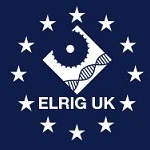Authors
M Mohammed1;
1 University of Westminster, UK
Abstract
The basis of phage-host interactions is not well understood. In this study, we use Anderson phage typing scheme for study of phage-host interaction as it provides a valuable model system for understanding the complex-dynamics of phage-host interaction. The scheme distinguishes more than 300 DT of Salmonella Typhimuriumbased on their patterns of lysis to a unique collection of 30 specific Salmonella phages. We sequenced the genomes of Anderson typing phages to characterize the genetic determinants that are responsible for the differences in these phage type profiles. Genomic analysis of typing phages reveals that Anderson phages can be classified into three different clusters including P22-like, ES18-like and SETP3-like clusters. Most Anderson phages are short tailed P22-like viruses (genus Lederbergvirus); but phages STMP8 and STMP18 are very closely related to the lambdoid long tailed phage ES18, and phages STMP12 and STMP13 are related to the long noncontractile tailed, virulent phage SETP3. Most of these typing phages have complex genome relationships, but interestingly, two phage pairs STMP5 and STMP16 as well as STMP12 and STMP13 differ by a single nucleotide. Much remains to be understood about the molecular basis of host-phage interactions however, Anderson phage typing scheme should provide insights into phage biology and the development of phage therapy as an alternative to antibiotics for the treatment of antibiotic resistant bacterial infections.

